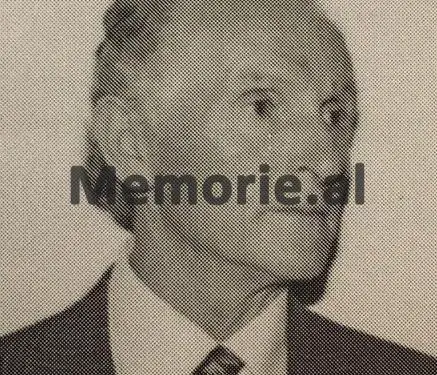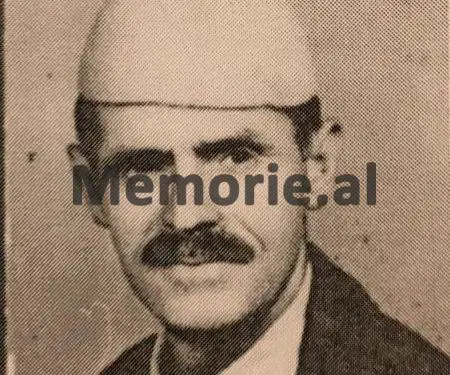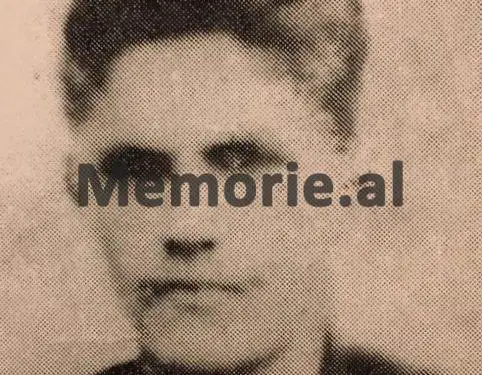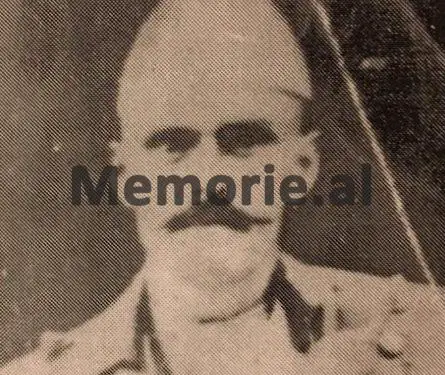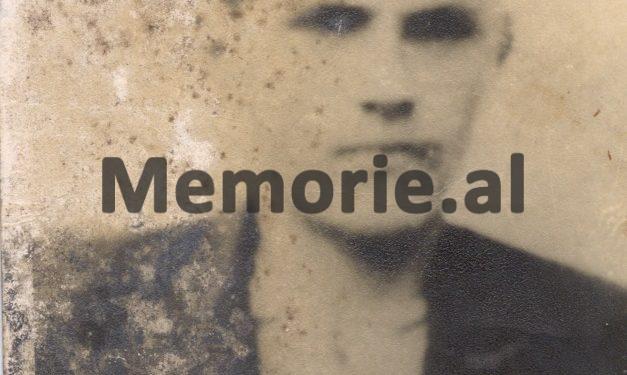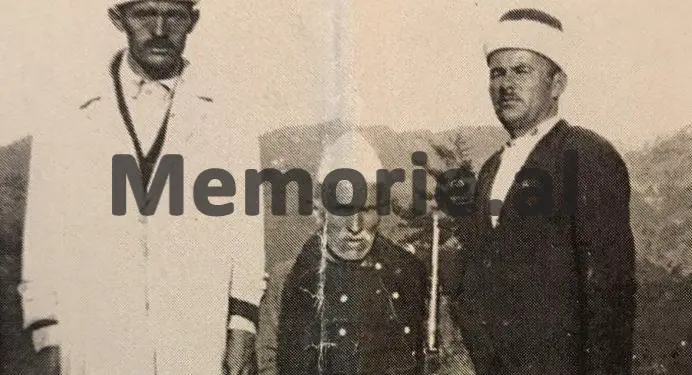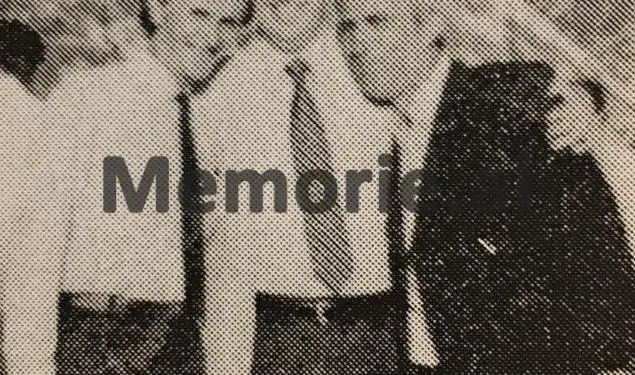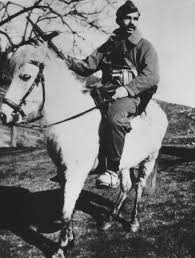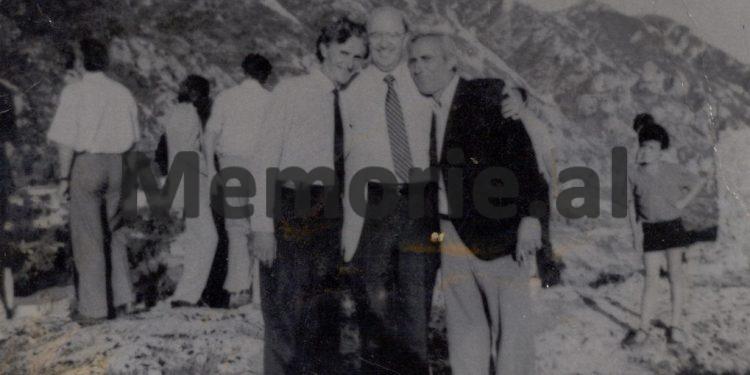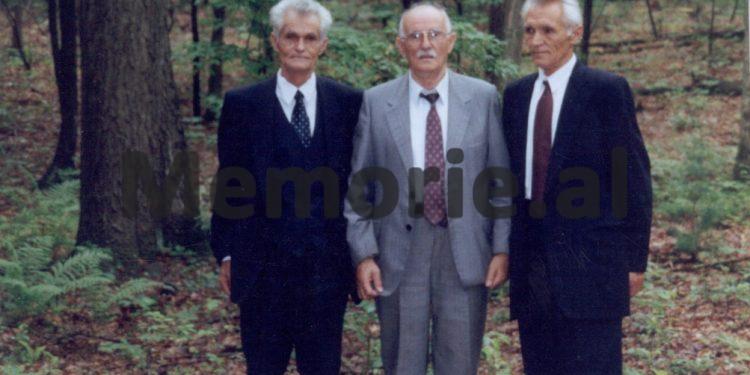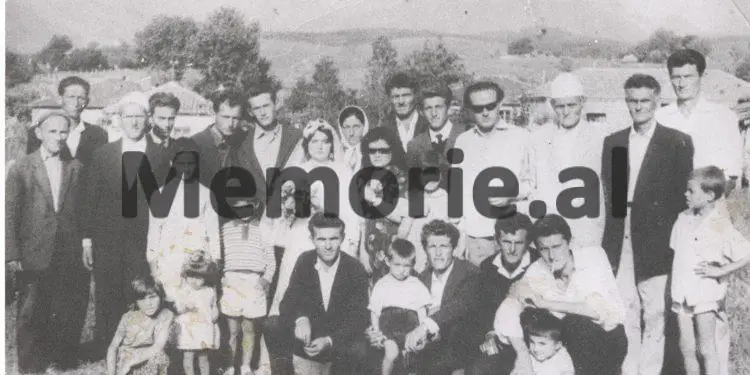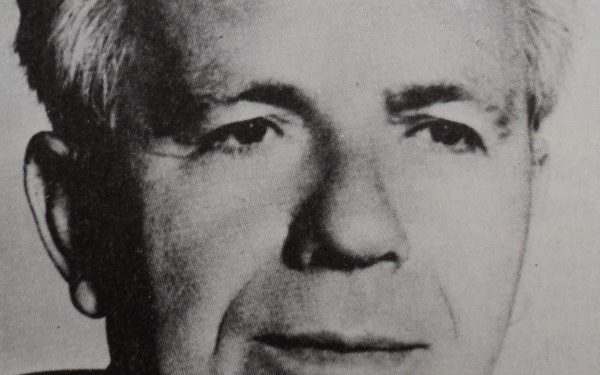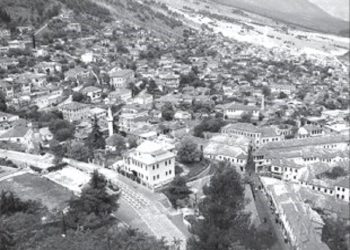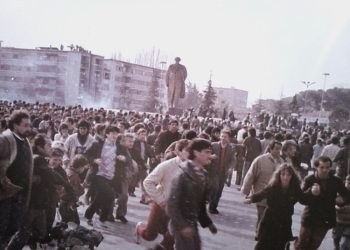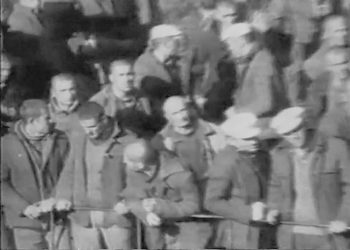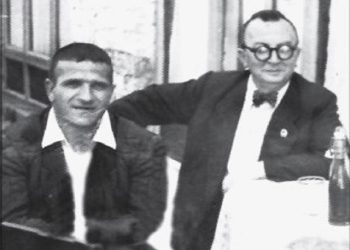Dashnor Kaloçi
Memorie.al publishes the unknown story of the large Metaliaj family originating from Dragobia of Tropoja, who after supporting Fan Noli due to the family connection they had with Bajram Beg Curri, even during the period of the Monarchy, did not have conflicts with the King Zog, after the mediation of Tahir Hoxha, the son-in-law of the Metalians, who was a high military and loyal to the King. The engagement of the large Metaliaj family in the Anti-Fascist War, fighting with weapons in hand with the nationalist and partisan forces, up to the territory of Yugoslavia at that time. How did the conflict and the final “rift” of that great family with patriotic traditions start with the communist regime of Enver Hoxha since the meeting with the leader of the Kosovar communists, Fadil Hoxha, in the village of Dragobi, in the spring of 1944, when their first, Sali Jaha, asked him who Kosovo would join after the end of the War, which then led to the massacre of that family that had 3 men shot, 7 prisoners, 5 fugitives and 15 interned families.
“In the spring of 1944, a large meeting was held in our province, attended by some of the communist leaders of that area, and with them was the leader of the Kosovar communists, Fadil Hoxha. In that assembly attended by all the men of the four villages of our area, Fadil Hoxha with other leaders sent by the Albanian Communist Party, said that their victory was a matter of days and all of us highlanders who were there should unite around that of the Yugoslav Party and brothers led by Josif Broz Tito. They described Tito and Yugoslavia as the “Big Brothers” of the Albanians and whoever was against them was also against Albania. As they asked us to trust them for the words that smelled of betrayal, the head of our family, Sali Jaha, who although he was about 75 years old, stood up and according to all the rules of the assembly of men, asked permission to speak. After he was given the floor, he addressed Fadil Hoxha and all the other communists who chaired that meeting, saying: ‘I wanted to say, well we won our war, but who will Kosovo be with (remains) after this’?! One of those closest to Fadil Hoxha replied: “Kosovo remained with Serbia, but we are brothers with the Yugoslavs and we have nothing to share.” After that, Sali Jaha, a few tears slipped from his eyes and, restraining himself, addressed them, saying: ‘Peace be upon you, because you have sold Kosovo’! Following the words of Sali Jaha, which were tacitly endorsed by many in the assembly, the meeting was adjourned. “While Fadil Hoxha was fleeing, he left messages to look at that man’s attitude and wrote his name in pencil on the pad he had with him.” The man who speaks and testifies for the first time for Memorie.al is 76 years old. Mal Metaliaj, one of the suckers of the well-known family from Dragobia, living in the USA, who tells the whole story of that big family, where its ancestors fought with guns in hand against the Turks and Serbo-Montenegrins, and then persecuted in the most barbaric way by the communist regime of Enver Hoxha. But who are the Metaliaj, what is the origin of that family and how did its history flow from the period of the Ottoman occupation, in the years of the Zog Monarchy, in the time of The Anti-Fascist War and after the Communists came to power?
Dragobia Metaliajt, rifle and generous houses
The origin of the Metalia family or as it is otherwise known by the surname Jahelezi, is from the village of Dragobi in the district of Tropoja. That mountain village which is crossed by the road that connects the Highlands of Mbi-Shkodra with that of Gjakova that leads to Peja-Prishtina, etc., is very much mentioned by the prominent men that it has brought to the depths of the centuries. One of them was Bajram Curri, or as he is otherwise known “Plaku i Maleve”, who was killed in a place called Dragobia Cave, which from that event has entered and has become quite famous in the history of Albania. The Metalia family, or as they are otherwise known by the inhabitants of those parts at the foot of the Northern Alps “Jahelezaj”, is autochthonous and has lived in that village for several centuries. According to some legends based on the generations of that family, it is thought that its ancestors settled in that village before the period of Skanderbeg, probably since the 1380s. This fact is also related to the religious faith of that family which was initially of the Catholic faith and then by various factors and circumstances it was Islamized. The oldest men of the Metalia family, who live in the village of Dragobi, in Mamurras of Kurbin as well as in the USA, have preserved in their memory to this day all the names of the ancestors of its trunk. It is thought that the first of them is called Kol Maçi, who was born in the early fourteenth century. After him come: Prek Kola, Curr Preka, Ali Curri, Met Alia, Elez Dema, Jah Elezi and Sali Jaha, who is also the last of the men of that family who is known as the head of that tribe. From a branch of the trunk of the Metalia family, was also Bajram Curri, whose father, Shaqir Curri, was the first cousin of Jah Elez Curri of Dragobia, one of the most mentioned and most prominent men of the Jahelezi family. The elderly men of the Metalia family confess that Bajram Curri himself was born in a chariot, when their family was moving from the invasions of the Ottoman hordes in that province. Jah Elez Curri, who was born around 1820, was one of the most famous men of that tribe and he is well known as the leader and commander of the highlanders of that province in the wars against the Ottoman and Serbo-Montenegrin armies. . Among the main battles where he became very famous and got a big name, were those held in Plavë Guci, as well as later in Kosovo. As a result of those wars, he has had an extraordinary popularity, not only in the area of Dragobia, but also in the whole North of Albania. The figure of Jah Elez Curri has been immortalized in the folklore of that region and has been conveyed to this day by famous lahutars in the very characteristic songs of that region that lies in the North-East of Albania. In one of the songs dedicated to Jah Elez Curri, among other things it is said:
“Jah Elezi in goxhup goat
how the dragon appeared before the army “
It is said that this song, dedicated to that military leader of the Dragonflies, has been sung for 170 years. For Jah Elez Curri show, that he did not remove the rifle from the hand until the last days of his life, even though he carried more than nine decades on his shoulder. In 1912, when the Elder of Vlora, Ismail Qemali declared the independence of Albania, Jah Elezi was elected as the delegate of that province to go to Vlora, but due to the impossibility from a young age, he sent his eldest son, Zeqir Elezin, who on November 28 participated in the raising of the flag. Zeqir Elez’s visit to the ‘Declaration of Independence’ in Vlora, is immortalized in the film “The Second November”, where he is personified as Shpend Dragobia. Jah Elezi died in 1918 at the age of 98 and after his death, Sali Jaha, one of his nine sons, took the place of the chief of the tribe. Coincidentally, Sali Jaha had nine sons, just like his grandfather. The well-known Tropojan family Jahelezi (Metalia) has had a close friendship with many other noble families, such as Sokoli of Shkodra and Syky of Bregu i Matë. In its three-storey towers in the village of Dragobi, many famous men were received and escorted, such as: Hasan Prishtina, Bajram Curri, Muharrem Bajraktari, Brahim Jakup Sokoli, Gjon Nik Syku, etc. Likewise, the tower of Metaliaj in the village of Dragobi, has always been open and a refuge for all travelers who had to cross the road. It is said that every night in one of the windows of that house there was a light, where the pilgrims stood and shouted: “O lord of the house, do you accept friends”. During the years 1920 – ‘24, all the men of the Metalia family who were capable of rifles, followed and became the main support of Bajram Curri. They also supported Curri in June 1924, when he attacked Krumë and led a part of the insurgents who overthrew the government of Shefqet Vërlac. Although the Metalias had supported the fanatical forces in the Counter-Revolution of June 1924, with the return of Ahmet Zogu to power in December of that year, they had no consequences from him. On the contrary, the Metaliaj were supported by King Zog, and also gave him their unstinting support. In the reconciliation of the Metaliaj with Zog, it is said that one of the most loyal officers of the King, Tahir Hoxha, also influenced him, with whom the Metaliaj had a close family friendship and later made him a son-in-law, giving one of his daughters as a wife Theirs. From the first years of the establishment of the Zog Monarchy, many of the sons of the Metalia family, gained study rights and state scholarships and attended classes in various schools, inside and outside Albania. Sali Jaha (son of Jah Elez) took his nine sons to school. The eldest of them, Jah Salihi, graduated from the Shkodra Gymnasium, in the “Our Mountains” Dormitory, while the other son, Adem Salihi, completed his studies in Theology in Egypt and when he returned to Albania, served as President of the Muslim Community of the Kukes. The other son, Mustaf Salihi, graduated from the “Normal” school in Elbasan and for many years served as a teacher in the spread of Albanian education in the remote areas of the North. Abaz Salihi also studied at the “Normale” in Elbasan. In addition to these and some other boys from the Metaliaj family, who after finishing school served in the administration of the Kingdom, one of the most famous of that tribe was also Lieutenant Met Jaha, who became the Commander of the Gendarmerie Post for the four villages of that area: Grykë-Valbonë-Dragobi-Kolmakshaj. Met Jaha remained in that position for seven years and he is known by all the inhabitants of that three, as a brave man, upright and of exceedingly strong character.
During the years of Nazi-fascist occupation of Albania, the entire Metalia tribe supported the Anti-Fascist Movement and many of its men fought with guns in hand in the partisan brigades. Even in the first days of April 1939, Adem Salihi, who at that time was serving as the Head of the Muslim Community of Kukës District, gathered all the students studying in the Madrasa of that city and gave a speech. against the fascist occupation, telling them not to be deceived by those flowers brought by the Italians, that tomorrow they would turn into bullets. Although during the years of the War, the Metaliaj, led by Asim Jaha, were recognized as nationalists and supported Tahir Hoxha, three of Sali Jaha’s sons joined the partisan brigades. During those years, the three-story Metaliaj house in Dragobi (with 25 rooms) hosted and provided bread to both Sadik Bekteshi partisans and Tahir Hoxha and Muharrem Bajraktar nationalists. It happened that overnight, in the big tower of Metaliaj, on one floor stood the partisans and on the other floor, the nationalists. Asim Jaha also took part in the famous Bujan meeting held in late 1943 and early 1944, as he was one of the most vocal leaders of the nationalists of that province. Sali Jaha, who died in 1957, was the first of the Metaliaj tribe and at the same time the last of the men who led him as tribal leader, because after the communists came to power, that tribe was persecuted and persecuted in the most barbaric way and at home. in Dragobi, was set on fire. After that, many of the sons and men of that family were forced to move violently, where they ended up in prisons and internments, and fled outside Albania to save their lives. To this day in the village of Dragobi in Tropoja, there are about 70 houses from the Metalia tribe (Jahalezi) after the rest, when they returned from exile, were grouped in the town of Mamurras, where they still live today.
The Metalians supported the Anti-Fascist War
During the War period, 1939 – ‘44, the Metalia family all became associated with the Anti-Fascist Movement, and many of its men participated in nationalist and partisan military formations with weapons in hand. In this regard, Mal Metalia testifies: “During the period of the fascist occupation of Albania, our whole family Metalia-j, or as it is known differently:” Jahelezi “, unreservedly supported the armed war. At that time, Metalia-jt were known as the main supporters of Tahir Hoxha (he was the son-in-law of our tribe Metalia-j) who had been a colonel of King Zog and was the leader of the nationalists for the whole province of Tropoja.Some of the most famous men of our family, like Met Jaha and Azem Jaha, were with Tahir’s forces and Sim Jaha, was his right wing.Although our family was known as nationalist, three other boys of our tribe, Jaha, Mustafa and Abaz Salihi, lined up with guns in hand in the brigades They were the brothers and sons of Sali Jaha.One of them, Abazi, arrived and became a battalion commissioner in one of the large partisan formations of Enver Hoxha’s National Liberation Army, which went to fight in the territories of Yugoslavia.
During the war, in the big tower of Metaliaj in the village of Dragobi, both the partisans of Sadik Bektesh, as well as the nationalists of Tahir Hoxha and Muharrem Bajraktar, stayed and were kept with bread. When the war ended, Sali Jaha’s two sons, Abazi and Mustafa, who had fought in Yugoslavia, returned home, while the third, Jah Salih Metalia, could not return after the Yugoslav authorities asked the Headquarters Command of the two partisan divisions. who were in Yugoslavia, that they should immediately hand over Jah Salihi, to give an account of why he had fought against the Serbian forces. Jaha had served for some time as Mayor of Junik and this led to the Serb communists shooting him without trial in Peja prison. “Jah Salihi’s assassination also came because he had organized the war and defended the Municipality of Junik with a weapon in his hand, when Tito’s Slavo-communist forces attacked the territories of Kosovo”, recalls Mal Metalia, the period when his tribe was all united with the Antifascist Movement, fighting to the territory of Yugoslavia at that time.
Conflict with Fadil Hoxha
After the assassination of Jah Salihi by Serb communists in Yugoslavia, another of the sons of that family, Sim Jaha, would lose his life, but this time by the Albanian communists in his hometown. With the execution of Sim Jaha, by partisan forces in 1944, the relations of the large Metaliaj family with the communists, began to be shaken and took a big rift. Asim Jaha Metaliaj, known as one of the most prominent nationalist leaders, after Tahir Hoxha and his public execution by the communists (along with Haxhi Belin), aroused not only the anger of his tribe, but of the entire province. , where he had undisputed authority. Those conflicts between the Metalia family and the communists were exacerbated at the end of the war, when she learned the truth about the murder of Jah Salihi by the Yugoslav communists in Peja Prison. Regarding the events that followed with the Metalia family, after the murder of their two sons and what was the attitude of the communists who came to power against them, Mal Xhemal Metaliaj, testifies: “The conflict and the big rift between our family and the communists, had started in the spring of 1944, before the assassination of Sim Jaha.As a result of that conflict we had with Fadil Hoxha and the representatives of the Albanian Communist Party, four months later they retaliated by executing Sim Jaha. of that conflict is as follows: In the spring of 1944 in our village Dragobi, which was the center of the whole province, a large meeting was held attended by some of the communist leaders of that area and with them was the leader of the Kosovar communists In that assembly where all the men of the four villages of our area had gathered, Fadil Hoxha and the other leaders sent by the Albanian Communist Party, said that their victory was a matter of days and all of us highlanders who were there had to unite around that Party and the Yugoslav brothers led by Josif Broz Tito. They described Tito and Yugoslavia as the “Big Brothers” of the Albanians and whoever was against them was also against Albania. As they asked us to trust them for the words that smelled of betrayal, the head of our family, Sali Jaha, who although he was about 75 years old, stood up and according to all the rules of the assembly of men, asked permission to speak. After giving him the floor, he addressed Fadil Hoxha and all the other communists who chaired that meeting, saying: ‘I wanted to say, well we won our war, but who will Kosovo be with (remains), after this?! One of those closest to Fadil Hoxha replied: “Kosovo remained with Serbia, but we are brothers with the Yugoslavs and we have nothing in common.” After that, Sali Jaha, a few tears rolled down his cheeks and, restraining himself, addressed them: ‘Peace be upon you, because you have sold Kosovo’. Following the words of Sali Jaha, which were tacitly endorsed by many in the assembly, the meeting was adjourned. “While Fadil Hoxha was fleeing, he left the messages to see the attitude of that man and wrote his name with a pencil in the block he had with him”, testifies Mal Metalia, regarding that event of 1944, when the head of his family Sali Jaha accused the representatives of the Albanian Communist Party and the leader of the Kosovar communists, Fadil Hoxha, of selling Kosovo, which led to the eventual break-up of the Metaliaj with the communists, who then began retaliating against them.
From 1946, Metaliaj in prisons and internments
After that event where Sali Jaha spoke openly in the assembly of men against the betrayal of Kosovo, the communists were not satisfied with the execution of Sim Jaha and Jah Salihi, but she was just the prologue of a great revenge that had begun against that family known. In this regard, Mal Metalia testifies: “Shortly after the assassination of Sim Jaha, in April 1946, partisan forces came to our village and set fire to the large tower of Sali Jaha, (two or three storeys with 25 rooms), after they had previously taken us out only in body clothes, about 70 members of our large family.After the burning of the tower, they started arrests starting with Sali Jaha’s sons who ended up in prisons and internments. Mustaf Sali Jaha was sentenced to 12 years in prison, while Abaz Sali Jaha was initially sentenced to 12 years in prison, but was sentenced to three years in prison, but was released for only three months. was sentenced to 20 years in prison. After their imprisonment, our family was declared kulaks and reactionaries and the communists warned all our fellow villagers not to dare to trespass on us at home.After any sentence given to any of the men in our family , the communist government seized all of them say movable and immovable property. As a result, about 70 of us from our tribe were left homeless and forced to put our heads where we could, as we could not even approach our burnt towers. “Shortly afterwards, that big tower became the center of the cooperative with all the relevant offices”, Mal Metaliaj testifies about the revenge of the communists against their family since April 1946, when after burning the big tower, he imprisoned and interned many from the members of that tribe.
The second blow in 1957
As if that great blow to the Communists by the great nationalist Metalia family had not been enough, some 11 years later, in 1957, they struck another blow at it. In this regard, Mal Metalia testifies: “In 1957, the head of our family, Sali Jaha, died and the communist government prevented people from attending his funeral. But even after all the pressure, Sali’s funeral was held. A large number of people took part in Jah, which infuriated the communists, and at that time, the communists planned to strike another blow at our tribe and save Sali Jah’s three sons: Jakupi, Xhemali and Mustafa were forced to flee Albania to Yugoslavia, where Jakupi took his 10-year-old son Xhaferri with him, while my father, Xhemali, took my 9-year-old brother Muharrem with him. After staying in Yugoslavia for a while, they were granted political asylum and moved to the United States, where they still live today. In retaliation for this escape, the communists arrested us, Xhemal Sali Jaha’s other three sons: Rizain, 19, Imer, 17 years old, and me who at that time I was only 14. After gold During our stay, ten other families from Metaliaj were interned in the villages of Myzeqe, in forced labor camps. After their deportation, I, along with my two brothers, Rizana and Imer, were taken to court in Shkodra. The older brother, Rizai, was sentenced to be shot and executed, while Imer was sentenced to 25 years and me to only 10 years. After the trial, we were taken to prisons and I was the youngest (14 years old) of all the political prisoners in Albania and everyone called me: “Little Mala”. The first day I was in the cell, the captain came to me and asked me why I had not taken the bread the prison gave us. “I replied that I had no money to buy it, because I remembered that bread was sold there as well”, Mal Malia remembers, at the time when after the escape of his father, Xhemal, he and his other two brothers were arrested and the elder, Rizana, they shot him.
Persecution of the Metaliaj family until the ’90s
While a large part of the Metalia tribe was in various internment camps, one of them, Adem Sali Metalia, (former Chairman of the Muslim Community of Kukes Region) in the late 1950s, was released and settled in the small town of Mamurras. After he settled with his whole family in the sector where he worked for the drying of the Thumana swamp, in the years that followed, other families of that tribe began to gather there, ending the period of internment. Regarding this and the further persecution of the Metalia tribe, which would continue until the end of the ’80s, Mal Metalia testifies: “There in the small town of Mamurras that in those years there was no difference from the villages, after 13 families from our tribe were gathered for release from exile, this was obligatory because we were also in exile there, and we were not allowed to go further away to Laç. To go to Tropoja, we had to get permission from the police. years we stayed in Mamaurras, we were forced to work only in the agricultural enterprise (Farm) and for the children of our tribe no right to study was granted to the high schools.The shadow of the class war haunted us everywhere, even the Security When I got engaged in those years, the State Security called my father-in-law, Hysen Dak Hoti, and put pressure on him, telling him why he had given me the girl. answered them that: the girl had dh mother of Sali Jaha’s house and did not intend to break that friendship. Even after the manly attitude of Hysen Dak Hoti, the Security did not give up and organized the youth to break our engagement. But the people of Mamurras supported us a lot and helped my wife Xhevahiren to work in agriculture. I myself, until the early 80’s, worked as a usta on the Farm and at that time with the help of my close friend and friend, Mark Alia, (former political prisoner), whom I still have as brother, I could hardly get a job as a painter at the Laç Municipal Enterprise. Only after the fall of the communist regime, where our entire tribe unreservedly supported democratic change, were we Metaliaj able to integrate somewhat into the socio-political life of the country and the boys of our tribe go to high schools and serve with devotion and devotion wherever they were assigned. The tragic story of our family, attracted the attention of the first American ambassador to Albania, Ryerson, who became a friend of our family and helped us to establish lost ties and contacts with other family members who had fled and lived from years in the US “, concludes his story, 76-year-old Mal Metalia, a sucker of one of the tribes with a patriotic past, which for almost half a century, was massacred in the most barbaric way by the communist regime of Enver Hoxha.
Names of those shot, imprisoned and interned by the Metalia tribe
Shot
- Asim Jah Metalia
- Riza Xhemal Metali
- Jah Sali Metalia
Prisoners
- Jakup Sali Metalia
- Adem Sali Metalia
- Mustafë Sali Metalia
- Mal Xhemal Metalia
- Imer Xhemal Metalia
- Asim Jah Metalia
- Abaz Sali Metalia
Fugitives
- Jakup Sali Metalia
- Xhemal Sali Metalia
- Mustafë Sali Metalia
- Xhaferr Jakup Metalia
- Muharrem Xhemal Metalia
Interned
- Met Jah Metaliaj, familjarisht
- Zenel Met Metalia, familjarisht
- Ismail Met Metalia, familjarisht
- Selim Met Metalia, familjarisht
- Ali Met Metalia, familjarisht
- Nezir Met Metalia, familjarisht
- Ibrahim Bajram Metalia, familjarisht
- Abaz Sali Metalia, familjarisht
- Feriz Sali Metalia, familjarisht
- Isa Sim Metalia, familjarisht
- Riza Sim Metalia, familjarisht
- Ragip Bash Metalia, familjarisht
- Islam Sadik Metalia, familjarisht
- Isuf Sadik Metalia, familjarisht
- Bek Sadik Metalia, familjarisht




